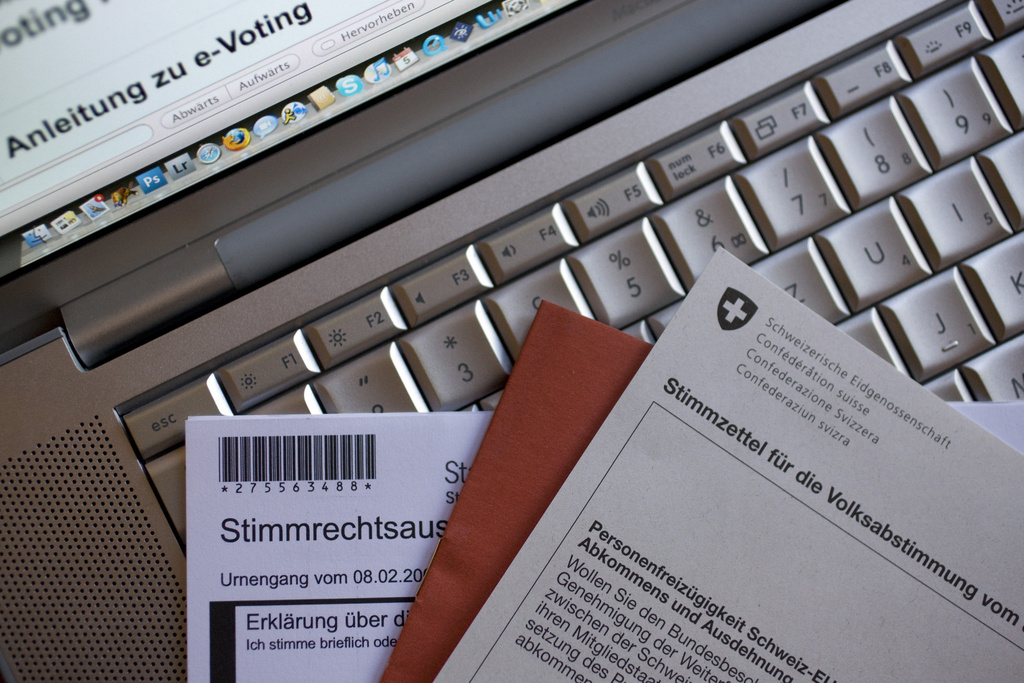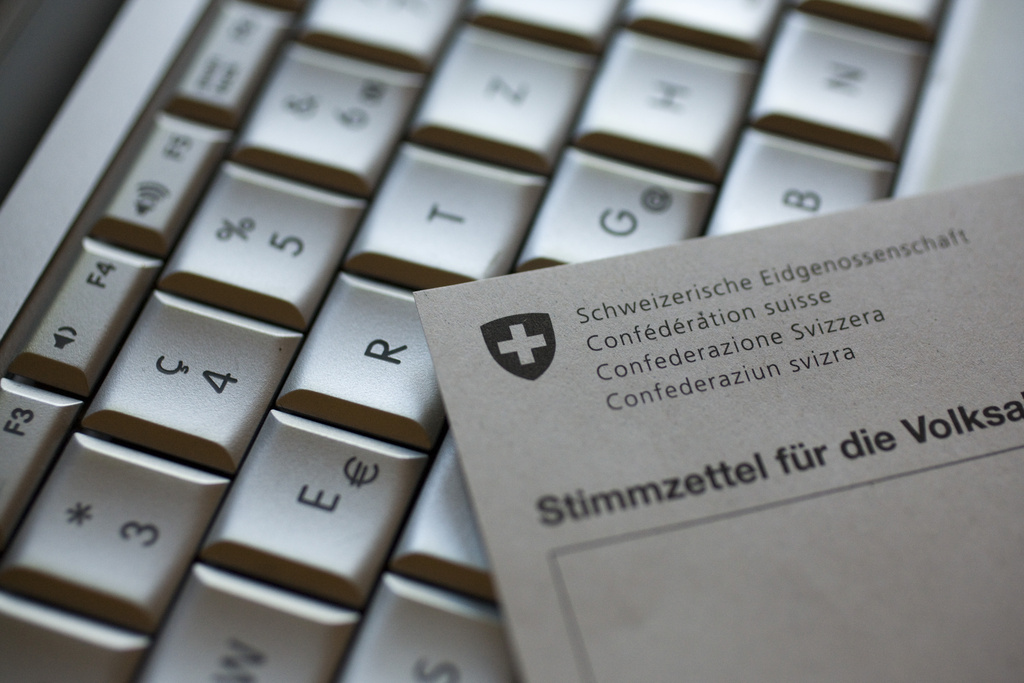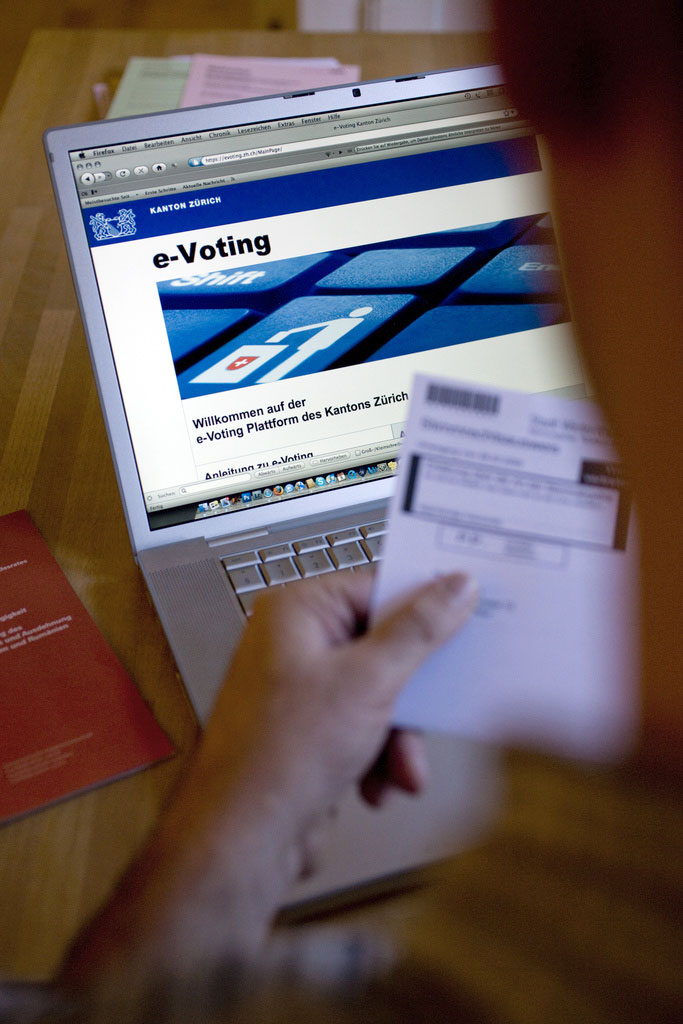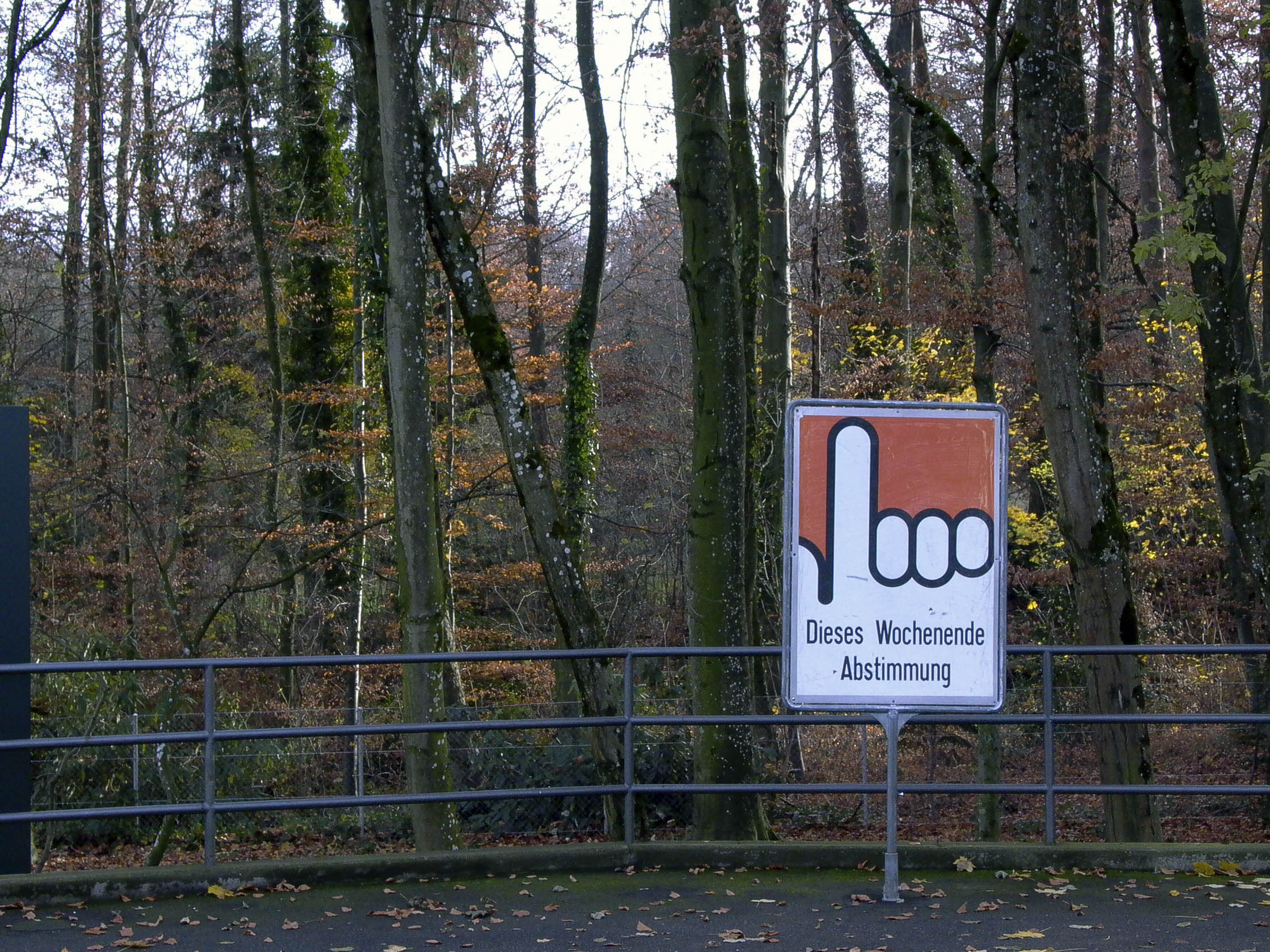Security questions hang over e-voting plans

Swiss e-voting systems lack transparency and are vulnerable to attack by malevolent software, a study has found.
The authorities are looking for solutions but officials point out that there is no such thing as absolute security, even with the traditional ballot paper vote.
With the systems used so far in electronic voting trials “citizens cannot verify if their vote has been registered and counted correctly. They are obliged to trust the administration and authorities completely,” Eric Dubuis, information technology professor at the Bern University of Applied Sciences, told swissinfo.ch.
Under the mandate of the Federal Chancellery, Dubuis co-authored a study on verifiable e-voting systems – systems that allow the voter to trace all the steps of his or her vote and to check that there has been no manipulation and that the vote has been duly counted.
The Bern researchers came up with a project system that allows each individual to verify the process from A to Z, without compromising voting secrecy.
Thanks to a special autonomous “electoral machine” with an integrated camera as well as a personal voting card with a chip, the system set up by the researchers also eliminates the risk connected to malevolent software – or malware.
The danger currently arises from the fact that the computers used for online voting are outside the control of the authorities supervising the election. And all the users do not have the necessary technical knowledge to notice the intrusion onto their computers of malware which can violate the secrecy of the vote, modify it or even cancel it.
The Bern university specialists deem the passage to second generation systems such as those that they have conceived to be “highly desirable”. The need for change is also underlined by canton Zurich which is running a pilot e-voting programme. Last year it decided to take a break to review its system.
Update
“E-voting works: tests have proved it. But with time, we have to update and perfect this technology,” said Christian Zünd, general secretary at Zurich’s justice and interior office.
In a written response to swissinfo.ch, the Federal Chancellery said that the systems used in Switzerland had been progressively updated. The Chancellery is already in the course of working with the cantons on second generation systems.
“The introduction of the verifiability component in the current systems” is also being looked at.
This solution should be quicker than that put forward by Dubuis’ team, even though he still has some reservations. “If you start building a lorry to transport milk and then decide afterwards that you want it to be a bus, it will not be easy to transform,” the professor said.
However he did acknowledge that “improvements can effectively be made to the current system”.
The Federal Chancellery experts have decided that the system is useful as a reference but could not be adopted in the long term, principally on the grounds of costs.
Financial consideration are holding back more than the Bern university project. Since any new system calls for significant investments, the canton of Zurich will not take any decision before studying the new report of the federal government on e-voting, due in summer 2013.
“Before investing in our system, we want to know clearly what the Confederation’s strategy is and to have the guarantee that the federal government really intends to introduce e-voting everywhere,” Zünd said.
The government’s report “will present a vision for the future of the project and the conditions for its extension,” the Federal Chancellery said. It also confirmed that “the goal is that a large majority of Swiss abroad can vote by internet in the next federal elections in 2015”.
No obligation
However, federalism complicates things. The confederation can coordinate and supervise the electronic vote but cannot oblige cantons to adopt it. “It is up to the cantons to decide if and when they wish to introduce it,” the Chancellery said.
But in a motion pending before the House of Representatives, the socialist parliamentarian Hildegard Fässler and 41 co-signatories are demanding that e-voting be imposed on the cantons. Their goal: that e-voting be made possible for all the Swiss abroad for the 2015 federal elections and for the entire Swiss electorate by the 2019 elections.
The government is opposed to this demand, arguing that an obligation would go against the current partnership, which has worked. The federal executive is also convinced that “a too hasty introduction of e-voting against the will of one or more cantons would do more harm than good”.
Absolute security
It will be down to the House of Representatives to accept or reject that motion. There will certainly be no shortage of critical voices among the deputies who will cast doubt on the security of the electronic vote.
“Providing maximum security is certainly an important asset,” Rudolf Wyder, director of the Organisation for the Swiss Abroad, told swissinfo.ch.
“It is something that should be the subject of constant improvement. But you cannot demand zero risk: it doesn’t exist, whether for e-voting, the postal vote or ballot box vote.”
“Even with the traditional ballot box vote, there are sometimes problems or errors,” Zünd observed. The Zurich official points out that the postal vote has the highest risk, which could be avoided with a switch to e-voting.
The rules for e-voting are fixed by the confederation. The participation in tests is subject to authorisation from the federal government.
The first tests were carried out in 2003 during communal elections in the canton of Geneva. Tests in Neuchâtel and Zurich followed in 2005.
The three pilot cantons each use a different IT system which is available to the other cantons through collaboration contracts. The first deal of this kind was signed in 2009 between Geneva and Basel City.
To date 13 cantons have taken part in tests.
Since 2011 Zurich has suspended its participation to review the issue.
According to the current rules, the number of people authorised to vote electronically can only reach 10% of the Swiss electorate and 30% of the electorate of a canton.
During the federal elections of March 11, a Swiss voter abroad registered with the canton of Lucerne inadvertently voted twice with the same card.
The problem was immediately reported by the alarm system. The error was speedily corrected “without violating the anonymity of the voter or voting secrecy and without affecting other votes”.
The system being used was the Geneva one and it was the first problem of that nature experienced in ten years and much lower than the number of incidents recorded with traditional ballot papers in the same period.
The Bern university system would prevent incidents of this kind but Eric Dubuis is convinced that the problem will not reoccur because the necessary steps have been taken.
(Translated from French by Clare O’Dea)

In compliance with the JTI standards
More: SWI swissinfo.ch certified by the Journalism Trust Initiative





You can find an overview of ongoing debates with our journalists here. Please join us!
If you want to start a conversation about a topic raised in this article or want to report factual errors, email us at english@swissinfo.ch.